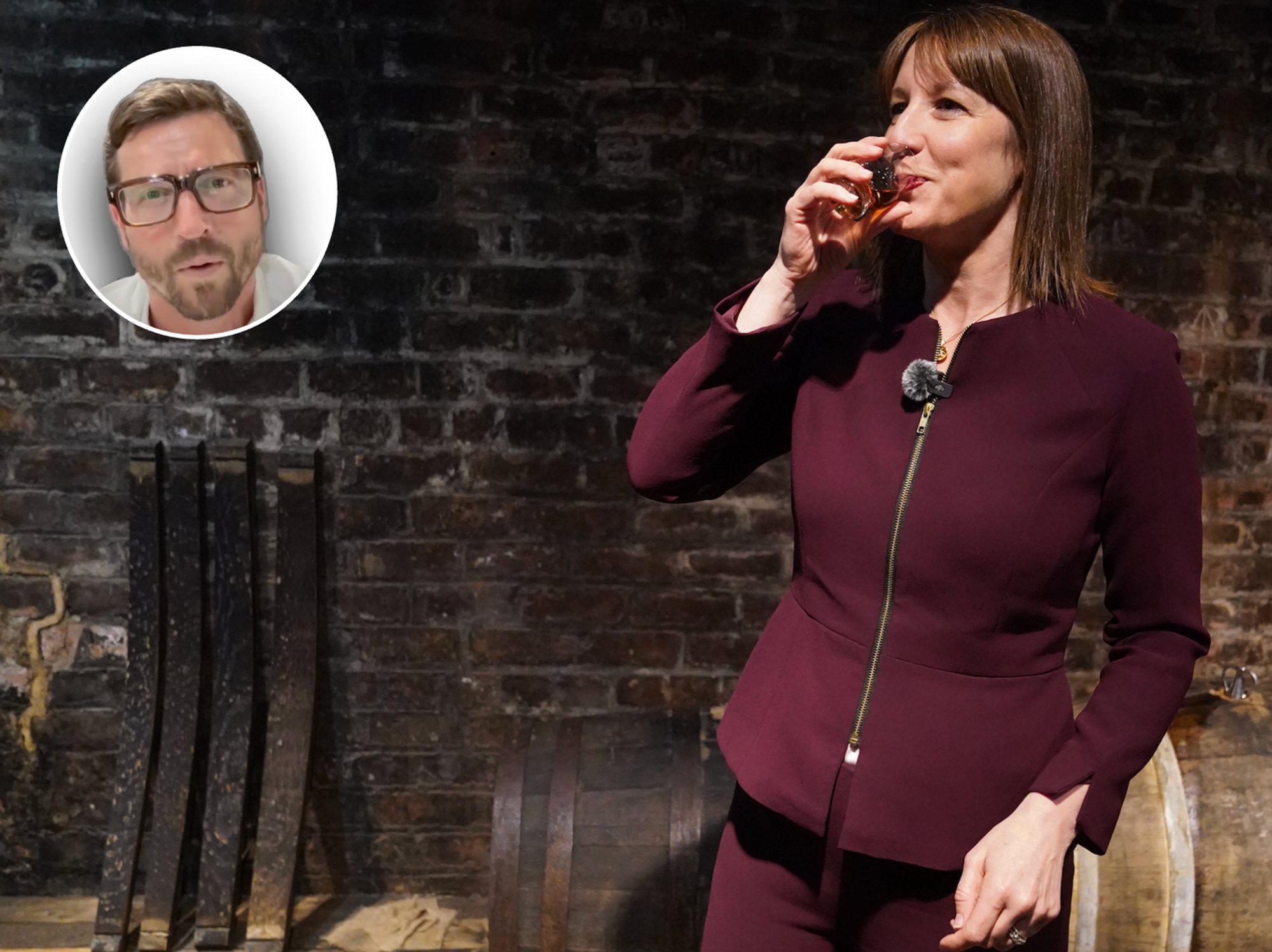Baby death scandal: Top safety expert demands 'scrap inquiries, fix maternity'
Repeated reviews and inquiries have exposed hundreds of avoidable deaths and injuries
Don't Miss
Most Read
Trending on GB News
One of Britain’s leading maternity safety experts has written to Health Secretary Wes Streeting, warning that another national enquiry will not fix the lethal failings in NHS care unless ministers finally act.
Professor James Walker, a national patient-safety adviser, spoke to the GB News originals podcast after Mr Streeting ordered a national investigation into maternity and neonatal safety after admitting “systemic failings” going back 15 years and that families have been “gaslit” for answers.
Prof Walker, Emeritus Professor of Obstetrics & Gynaecology at the University of Leeds, told the GB News podcast that he believes inquiries don’t change the system.
He has written to the Health Secretary, urging him to instead set up a national maternity task force with powers to drive improvement and hold leaders to account.
He said: “National inquiries and local inquiries rarely discover anything new that has not already been discovered. We largely know where and what the problems are.
TRENDING
Stories
Videos
Your Say
“The real emphasis should be on developing a national task force that can look at this in some detail and can implement changes.”
He said he understands why ministers feel compelled to act and set up another inquiry, but believes another report will not make labour wards safer.
“The rapid review is unlikely to have the time to give the depth required. I’d much rather the money was spent on implementing change to improve outcomes, to stop these events happening.”
“Inquiries are very important for giving families answers, but they don’t actually move anything forward because nothing changes from them.”
LATEST DEVELOPMENTS:
Professor James Walker spoke to the GB News originals podcast after Wes Streeting ordered a national investigation into maternity and neonatal safety
|GB NEWS
The news follows a new survey which shows nearly half - 46 per cent - of women now fear giving birth, and one in four (26 per cent) are delaying pregnancy because they don’t believe their local unit is safe.
Prof Walker says families want two things: the truth about what happened to them and reassurance that the same mistakes won’t happen again.
He said: “Most families who have a bad outcome not only want to know why it happened to them, but whether we will stop it from happening to someone else? And that’s again where we’ve failed.”
Over the last decade, repeated reviews and inquiries have exposed hundreds of avoidable deaths and injuries:
- Morecambe Bay (2015): at least 11 babies and one mother died.
- Shrewsbury & Telford (Ockenden Review, 2022): around 201 babies and nine mothers might have survived with better care.
- East Kent (Kirkup Review, 2022): at least 45 babies’ deaths were judged avoidable.
- Nottingham (ongoing): the largest inquiry yet, examining hundreds of cases.

Prof Walker says families want the truth about what happened
|GB NEWS
Prof Walker said inquiry after inquiry has shown a repeated pattern of poor care: missed escalation, poor communication, and families not heard.
“There is something wrong in the way that the care is being provided… that allows the free-flowing collaboration between all the staff and the families… to break down.”
“I don’t think Nottingham is necessarily any different… the same culture problems… the same lack of listening, the same lack of escalation.”
He said the inquiries occur not only because of tragic incidents, but also because of silence afterwards.
“The inquiries set up not because the incidents occurred… [they] have come about because families have not been given the answers they deserve, and we’ve let them down.”
He also said the frontline is being warped by top-down rules and targets, which he said often leads to defensive practice, rather than safer care.
He said: “We are drowning in targets, metrics and bureaucracy. It has created defensive practice and taken focus away from the woman in front of you. That’s when things go wrong.”
“When we say that you must make sure 95 per cent of your staff are trained… that just puts people [on] seats on chairs. It doesn’t actually prove that they are competent.”
He added: “The problem is that goals and targets drive care. So you ignore all the other care to make sure you’ve reached your targets because that’s what you’re judged on.”
“Don’t make the target the thing you’re trying to change… make the labour ward management better and that by definition this will reduce your section rate.
“Guidelines are guidelines. They’re not rules… A given individual may not fit into the guideline… The mother knows her own body.”
“To tell her that she’s not in labour because she hasn’t crossed some threshold… is just harmful.”
He argued that ministers ultimately should be accountable for failings: “Inevitably it should be the Government’s because the Government is the paymaster… In a firm that fails, the board of directors… are responsible. The Governments are the board of directors.”
He has urged Mr Streeting to design for safety before a crisis. He said the NHS should bring in safety scientists to fix systems so escalation and rescue always work.
Prof Walker said that while maternal and baby deaths remain small in absolute numbers, the trend is not improving, and Britain fares badly against comparable countries.
“The figures haven’t really changed very much… they haven’t improved, and we certainly lag behind other countries that have better figures than us.”
He added: “Planes crash very rarely… but it’s important the crew know exactly what to do. That’s what we should be aiming for… particularly in maternity.“Instead of building on what’s good… they often actually strip away everything and reorganise… It takes time to reform back to a functional unit after every change.”
Maternity negligence payouts now exceed £1billion a year - the NHS’s biggest litigation bill.
Prof Walker says this is a measure of catastrophic harm and a sign of warped priorities.
“More money is spent on litigation payout rather than on caring for women in pregnancy. It’s ridiculous.”
“Improving the outcome for pregnant women and their babies will save the health service a lot of money… What we should be doing is making care safer.”
A Department of Health and Social Care spokesperson said: "Too many families have endured profound harm and heartbreaking loss due to failings in maternity care.
“That's why we've commissioned an urgent national independent investigation, and will set up a taskforce, chaired by Secretary of State, to root out those systemic failures and deliver a plan for real change in maternity and neonatal care.
“But we know we also need action now to improve safety across NHS maternity and neonatal care, so we've introduced advanced monitoring systems, new care bundles to tackle maternal deaths, and programmes to prevent brain injuries during childbirth."
More From GB News











